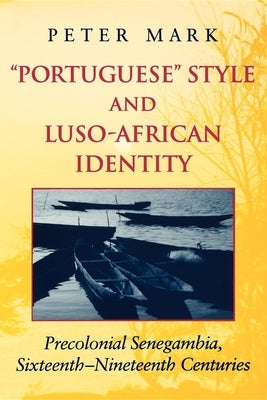Before you leave...
Take 20% off your first order
20% off
Enter the code below at checkout to get 20% off your first order
Find Your Next Read
Discover summer reading lists for all ages & interests!
Find Your Next Read

In this detailed history of domestic architecture in West Africa, Peter Mark shows how building styles are closely associated with social status and ethnic identity. Mark documents the ways in which local architecture was transformed by long-distance trade and complex social and cultural interactions between local Africans, African traders from the interior, and the Portuguese explorers and traders who settled in the Senegambia region. What came to be known as "Portuguese" style symbolized the wealth and power of Luso-Africans, who identified themselves as "Portuguese" so they could be distinguished from their African neighbors. They were traders, spoke Creole, and practiced Christianity. But what did this mean? Drawing from travelers' accounts, maps, engravings, paintings, and photographs, Mark argues that both the style of "Portuguese" houses and the identity of those who lived in them were extremely fluid. "Portuguese" Style and Luso-African Identity sheds light on the dynamic relationship between identity formation, social change, and material culture in West Africa.
Peter Mark is Professor of Art History at Wesleyan University. He is author of The Wild Bull and the Sacred Forest and A Cultural, Economic, and Religious History of the Basse Casamance since 1500.
Thanks for subscribing!
This email has been registered!
Take 20% off your first order
Enter the code below at checkout to get 20% off your first order